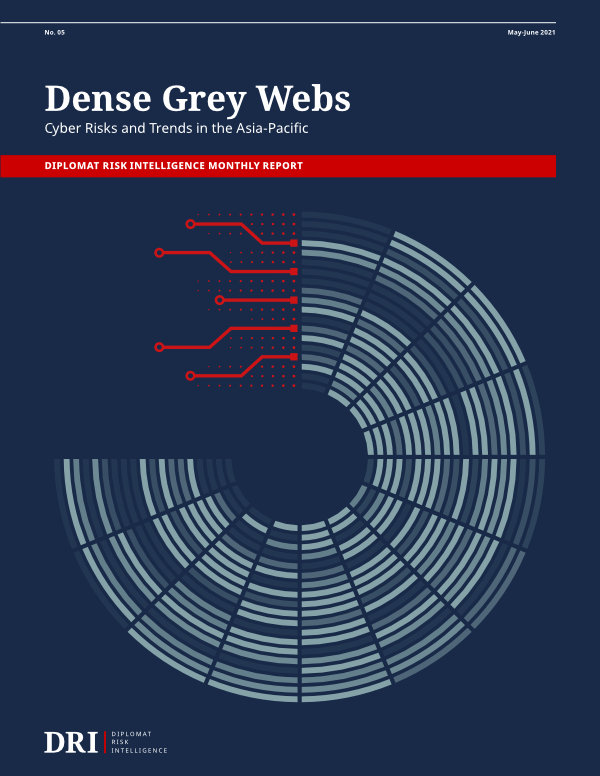| Welcome to the latest issue of Diplomat Brief. This week our top story looks at the devastating impact of the pandemic on India’s middle class. We also have an interview with Cherian George, a professor of media studies at Hong Kong Baptist University’s journalism department, about the power of political cartoons in Asia – and the resulting censorship cartoonists often face. |
| Story of the week |  | ECONOMY COVID-19 Shrank India’s Burgeoning Middle ClassWhat Happened: The COVID-19 pandemic had a devastating impact on India’s economy, causing a 7.7 percent contraction in the country’s GDP in 2020. The economic hardship knocked many people out of India’s middle class – India’s middle-income tier shrunk by 32 million people in 2020, wiping out the last three years of progress in poverty alleviation. Overall, India accounted for a whopping 60 percent of the people who dropped out of the global middle class last year. Our Focus: “In terms of the income distribution, now we are stuck with more poor people and few middle-income earners,” Rakesh Kochhar, senior researcher at the Pew Research Center, told The Diplomat. “This situation has no parallels. The closest we have come to this was perhaps during the Great Depression.” What Comes Next: For India, which has long yearned to break into the ranks of the top global economies, the pandemic was a critical blow. The wave of job losses – coupled, experts argue, with a lack of substantial government support – has knocked more Indians into the low-income and global poverty brackets. The key question now is how long the damage will last. Read this story |
| Behind the News | INTERVIEW Cherian GeorgeCherian George, co-author of “Red Lines: Political Cartoons and the Struggle Against Censorship,” on the role Malaysian cartoonist Zunar played in the downfall of Najib Razak: “UMNO was a hegemonic party, the only rulers Malaya had known since 1957. They were the natural, taken-for-granted leaders of the Malay majority. Making their ouster thinkable required years of counter-ideological work by politicians, activists, artists, humorists. Zunar contributed to this effort.” Read the interview |
| This Week in Asia | Central Asia Taliban Return to Power in AfghanistanOver the weekend, the Taliban entered Kabul. Analysts will be debating for decades how the moment arrived, but it’s an incontrovertible reality that corruption played a critical role in the failure of the Afghan government to resist the Taliban’s onslaught. Find out more | South Asia Pakistan’s Role in the Taliban TakeoverPakistan is one the few countries celebrating the Taliban’s rapid takeover of Afghanistan, given Islamabad’s long-standing support for the militant group. But that same fact also has many blaming Islamabad for the fall of the Afghan government, giving a new diplomatic headache to Pakistan. Find out more | Northeast Asia China Reacts to the Fall of KabulBeijing has responded to the rapid Taliban takeover of Afghanistan with finger-pointing (and no shortage of schadenfreude) at the United States’ failure. But ultimately China must contend with the reality of an Islamic extremist group ruling on its border. So far, indications are China will readily recognize the Taliban government, but will that insulate Beijing from the negative impact? Find out more | Southeast Asia Kamala Harris Departs for Southeast AsiaThis week, U.S. Vice President Kamala Harris will embark on a two-nation tour of Southeast Asia. The trip, which begins Sunday, will involve stops in Singapore and Vietnam, two nations that Washington views as key partners in its attempts to curb China's regional ambitions. (The two nations also paid host to Defense Secretary Lloyd Austin last month.) Harris is reportedly set to deliver a major policy speech that will set the tone for the Biden administration’s policy in Southeast Asia. In the wake of the messy U.S. withdrawal from Afghanistan, regional leaders will no doubt be listening closely. Find out more |
| Visualizing APAC |  | Associated Press Hundreds of people gather near a U.S. Air Force C-17 transport plane at a perimeter at the international airport in Kabul, Afghanistan. The Taliban takeover has spurred panic, especially among Afghan women. See the full picture |
|  |




